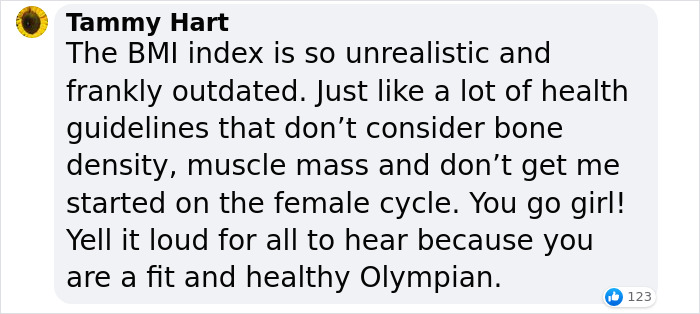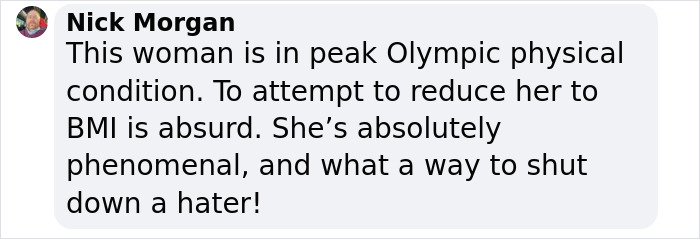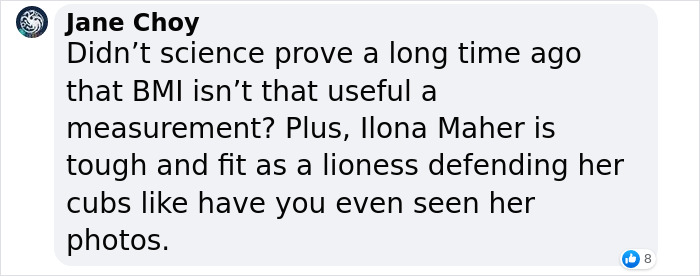Ilona Maher, one of the biggest stars of the Olympic women’s rugby sevens competition, which kicked off Sunday (July 28) at the Stade de France, fired back at a comment on social media that attempted to fat-shame her. The athlete used her platform to debunk misconceptions perpetuated by the use of the body mass index (BMI).
Taking to her Instagram page on July 10, the 27-year-old American sportswoman, who just helped Team USA women’s rugby advance to their first Olympic semi-finals in Paris, responded to a comment that read: “I bet that person has a 30% BMI.”
The BMI is a measure for adults to check what category their height and weight puts them in (underweight, healthy, or overweight), Patient.info explains.
The measure is calculated by dividing a person’s weight by the square of their height or BMI = weight/height2.
As per its official weight ranges, a BMI of 18.5 is considered underweight. Between 18.5 and 24.9, a person would be labeled as a healthy weight.
Ilona Maher is one of the biggest stars of the Olympic women’s rugby sevens competition
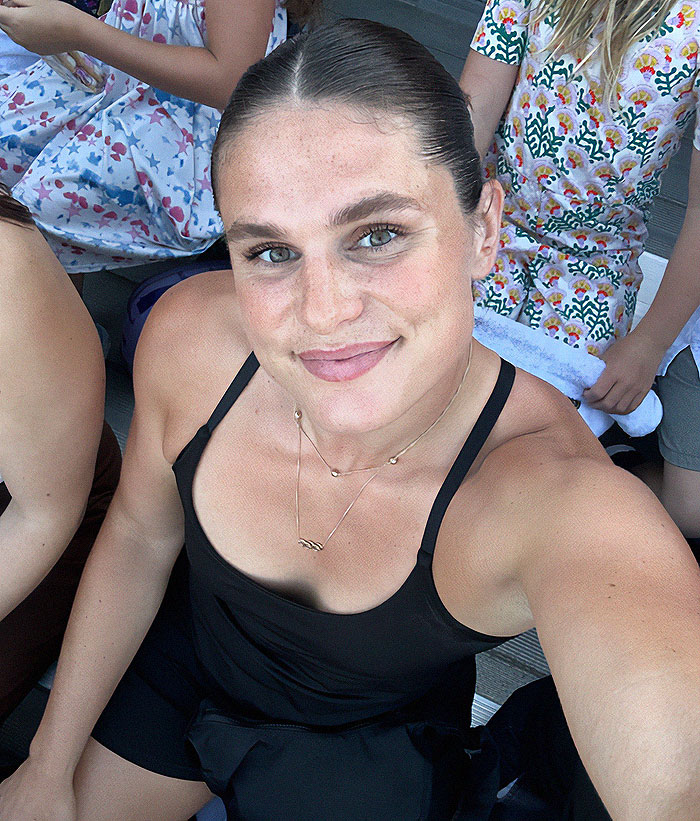
A BMI ranging between 25 and 29.9 would mean that a person is overweight, while a score over 30 would categorize a person as obese.
Nevertheless, the system has long been criticized among medical experts, as it does not take into account muscle mass, bone density, overall body composition, and racial and sex differences.
In a Reel posted on her Instagram page, which amassed over 11 million views, Ilona highlighted this exact problem, as she responded to the unpleasant comment: “I think you were trying to roast me, but it’s actually fact, I do have a BMI of 30. Well, 29.3.”
The Vermont, USA, native went on to reveal that she had been considered overweight her whole life, even feeling self-conscious in school, when during a routine medical examination, the healthcare professional had labeled her as “overweight” in her files.
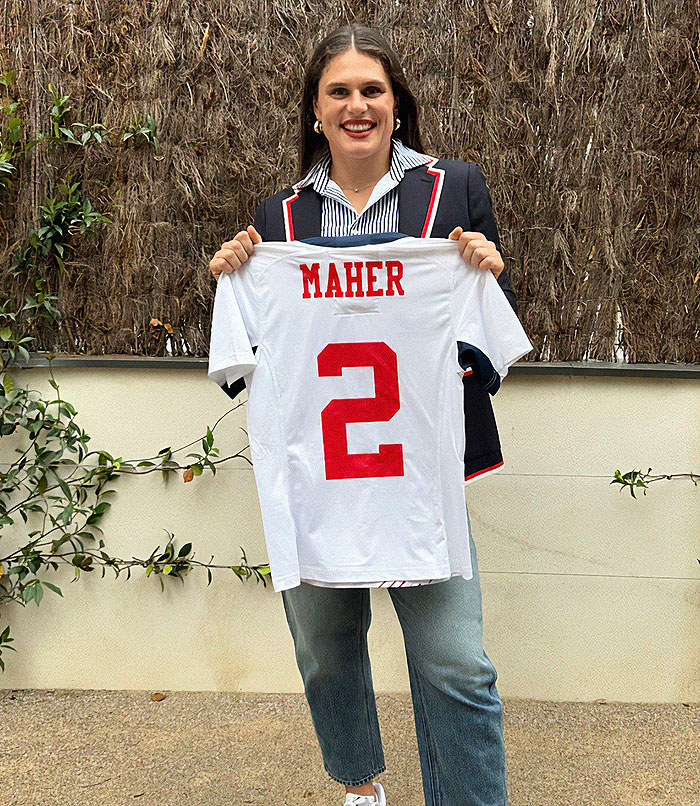
“BMI doesn’t tell you much,” Ilona, who is among the most followed athletes on social media, said.
The rugby player explained that she is 5 foot 10 inches (around 178 centimeters), 200 pounds (around 91 kilograms), and has around 170 pounds (around 70 kilograms) of lean mass.
Her body measurements appear to equate to 15% body fat, which is considered in the “athletic” range for women, according to Healthline.
“BMI doesn’t tell you what I can do, what I do on the field, how much muscle I have,” Ilona argued.
The Olympic women’s rugby sevens competition kicked off at the Stade de France
“But alas, I’m going to the Olympics, and you’re not,” she concluded.
A handful of people appreciate the athlete’s outspokenness on the issue, something she has been notable for, often taking a stand for body positivity.
“‘Do that math in your head… you probably can’t’ pronounced dead at the scene,” an Instagram user commented.
Sports Dietician Jessica Isaacs wrote: “@ilonamaher …every sports [registered nutrician]’s fave athlete on social media.”
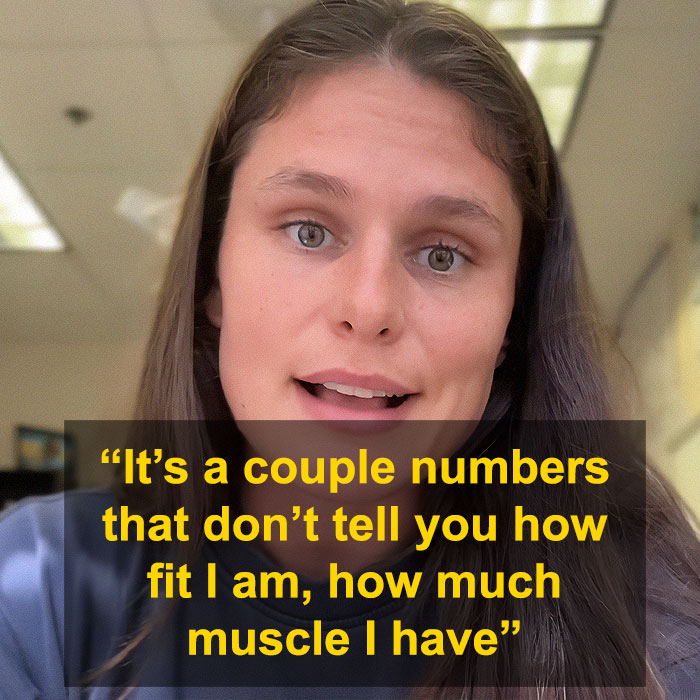
Molly Bruggeman, who is rowing at the 2024 Paris Olympic Games for Team USA, penned: “Preach my queen. BMI ISN’T MADE FOR ATHLETES.”
“‘I’m going to the Olympics and you’re not’ ABSOLUTELY OBLITERATED THEY WILL NEVER RECOVER,” a netizen quipped.
Hungarian professional CrossFit athlete Laura Horváth shared: “Louder for the ppl in the back.”
American Olympic bobsledder Elana Meyers Taylor added: “Fellow overweight Olympian here! That high BMI has been the key to my Olympic success!”
Ilona fired back at a comment on social media that attempted to fat-shame her

A separate individual chimed in: “Imagine tryna fat shame an Olympic athlete.”
“There is an urgent need for accurate, practical and affordable tools to measure fat and skeletal muscle, and biomarkers that can better predict the risks of diseases and mortality,” Dr. Rexford Ahima, a professor of medicine and the director of the obesity unit at the Institute for Diabetes, said in a 2022 Medical News Today article.
He continued: “Advances to improve the measurement of obesity and related factors will help determine the optimal weight for an individual, taking into account factors such as age, sex, genetics, fitness, pre-existing diseases, as well novel blood markers and metabolic parameters altered by obesity.”
Dr. Mitchell Lazar, a professor of medicine and genetics and the director of the Institute of Diabetes, Obesity, and Metabolism, told Medical News Today: “Future research should be focused more on molecular pathways, especially how metabolic factors altered by obesity change the development of diabetes, heart diseases, cancer and other ailments, and influence the health status and mortality.”

Nick Trefethen, a professor of numerical analysis at Oxford University’s Mathematical Institute, told The Economist in 2013 that BMI leads to confusion and misinformation.
At the time, the professor said he believed that the BMI weight/height term divides the weight by too much in short people and too little in tall individuals.
According to Trefethen, this results in tall people believing they are fatter than they really are, and short people thinking they are thinner.
BMI was devised in the 1830s by Lambert Adolphe Jacques Quetelet (1796-1874), a Belgian mathematician, sociologist, statistician, and astronomer, as per Medical News Today.
The athlete used her platform to debunk misconceptions perpetuated by the use of the body mass index (BMI)
Trefethen explained that during Quetelet’s time, there were no calculators, computers, or electronic devices – which is probably why he opted for a super-simple system.
The Oxford professor consequently wondered why institutions today on both sides of the Atlantic continued using the same flawed BMI formula, saying: “Perhaps nobody wants to rock the boat.”
He believed a better calculation than the present weight/height2 for BMI would be weight/height2.5, explaining: “Certainly if you plot typical weights of people against their heights, the result comes out closer to height2.5 than height2.”
As discussed by Ilona, one of BMI’s biggest flaws is that it does not take into account the person’s body fat versus muscle (lean tissue) content.

Many healthy athletes would be considered overweight and even obese based on their BMIs, such as wrestler Steve Austin.
At the height of his career, Steve weighed 114 kilograms (252 pounds) and was 6 feet and 2 inches tall (around 188 centimeters). This meant that his BMI was at 32.4, classifying him as obese.
Muscle weighs more than fat because it is denser. Moreover, a cubic inch of muscle weighs more than a cubic inch of fat, Medical News Today explained.
Therefore, BMI will inevitably classify muscly, athletic people as fatter than they really are.
Taking to her Instagram page, the 27-year-old replied to a comment that read: “I bet that person has a 30% BMI”
That calculation is probably right for the sedentary couch potato, but not for the athlete, the medicine-focused outlet explained.
The Centers for Disease Control and Prevention said in 2022 that BMI “is a fairly reliable indicator of body fatness for most people.”
Additionally, the National Institutes of Health shared in 2022: “A good way to decide if your weight is healthy for your height is to figure out your body mass index.”
“Perhaps they should consider revising their statements,” Medical News Today wrote.
“This woman is in peak Olympic physical condition,” a reader commented

